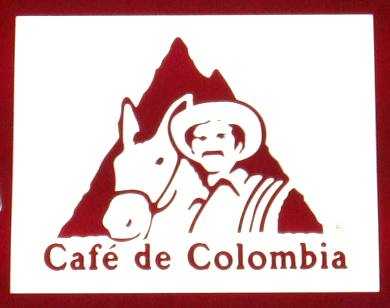BOGOTA, Colombia – As part of its added value strategy, which includes the operation of Buencafé and the Juan Valdez brand, the Colombian Coffee Growers Federation ( FNC ) reported a total of specialty coffees 1,155,000 60-kilo bags exported in 2013, surpassing its own records.
Thus, the total added value exports of the National Coffee Fund reached a 64% of its total exports, which translates into better prices for coffee farmers over the premiums paid for standard quality Colombian coffees.
Net exports of specialty coffee is 16.2% higher than the 993,820 bags of 60 kilos of specialty coffee exported in 2012, and 12.1% higher compared to 1,030,317 bags exported in 2011, which marked the previous record.
It is important to note that according to the definition of specialty coffee used by the FNC, premiums that are captured above the normal price of Colombian coffee are required to be transferred to producers. Total premiums transferred by the FNC to specialty coffee growers since the new strategy was launched amount 154 million dollars.
“Thanks to efforts we have made during recent years to increase our productivity and the problems that other high quality coffee producing countries are facing in terms of coffee rust, the higher harvest has boosted demand for Colombian specialty coffees,” says Constanza Mejía, Acting Commercial Manager, of the FNC.
“We are getting more attention from international buyers interested in Colombian specialty coffees, our business model, origin denominations, sustainability and adaptation to climate change, which is resulting in sales and long-term commitments,” added Mejía.
To keep up with growing demand, and as part of its added value strategy, differentiation and defense of origin, the FNC helps producers climb up the coffee value chain, providing technical assistance, tools and standards for the production of specialty coffees.
According to the FNC’s definition of specialty coffee, there are specialty coffees of origin, of preparation and that those that follow particular sustainability protocols.
The latter coffees coffees meet strict social, environmental and economic standards that strive to ensure the future and well-being of those who produce it. Friendly practices with the environment can be certified with the international stamps. (Rainforest, Fairtrade Labeling Organization (FLO), Organic, UTZ Certified) and/or also verified according to international protocols (4C, International Conservation, Nespresso AAA, Coffee & Farmer Equity (CAFE) Practices).
The origin coffees come from a specific region or farm. They are sold unmixed to final consumers to preserve the cup’s unique attributes. These coffees in turn may be regional, exotic or farmed. Examples of regional coffees come from Cauca, Nariño, Huila (the three with Protected Designation of Origin), Unesco´s recognized Coffee Cultural Landscape, Santander, etc., each with unique attributes.
Genuine quality and clear business strategies
The added value strategy, differentiation and defense of the origin of FNC has sought to strengthen the presence of Colombian coffee in the higher value segments with consistent and coherent actions in recent years.
Thus, the increasing exports of specialty coffees are a result of the use of a number of legal tools, adequacy of supply and promotion and positioning.
On the legal front, the protection of origin with legal instruments such as Protected Designation of Origin for Café de Colombia and regional appellations as Nariño, Cauca and Huila are included among the various initiatives that are part of this strategy.
In regard to the adjustment of supply to market demand, it is worth highlighting the work of the FNC to increase the number of producers growing coffees with sustainability protocols. Thus, the number of specialty coffee producers grew from 68,624 producers in 2008 to 184,146 in 2013.
The success of the Juan Valdez brand strategy to promote origin has also generated interest and demand for Colombian specialty coffee.
The FNC also organizes international competitions such as the Cup of Excellence, creating greater visibility coffees from different regions.
Additionally, the Colombian coffee industry participates in various international fairs as well as the annual trade fair, Expoespeciales Colombia Coffee, attracting dozens of international buyers.
The next edition of Specialty Coffee Expo will be held in Medellin Colombia from October 2 to October 5.
The increasing export of specialty coffee is also responding to a dynamic segment that has been marked by new presentations and makes important players in the global industry.


















